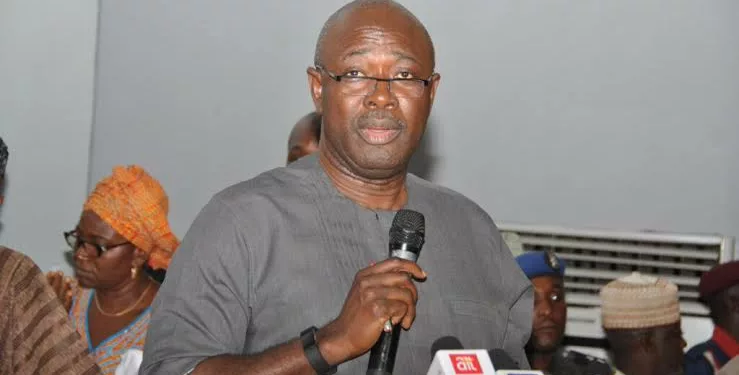The Minister of State for Petroleum Resources (Oil), Heineken Lokpobiri has expressed apprehensions over the availability of crude oil for the operation of recently inaugurated refineries in Nigeria.
Speaking for the third time in four months, Lokpobiri expressed his concerns during the 2024 sector retreat for the ministry held in Abuja under the theme: ‘Building Synergy for Enhanced Development in the Oil and Gas Sector.’
“The first target is to see how we can ramp up production, and then we can meet our target in terms of increase in revenue, meet our obligation in the mid-stream and upstream,” said Lokpobiri.
He underscored the potential embarrassment of completing refinery rehabilitations without securing sufficient feed stocks.
“One of the challenges I am afraid of is, if we finish fixing our refineries, we will be unable to get feed stocks,” he added.
This concern marks the third time in the last four months that the minister has publicly addressed the issue, indicating its significance in Nigeria’s oil and gas sector.
He initially raised the issue in November 2023 while responding to questions from State House correspondents at the end of a retreat at the Presidential Villa.
At the recently concluded seventh edition of the Nigeria International Energy Summit in Abuja in February, Lokpobiri also reiterated the significant crude oil requirements of the refineries.
“The Dangote refinery alone would need up to 650,000 barrels of crude oil daily, while the government-owned ones would gulp about 450,000 barrels,” he stated.
Lokpobiri also highlighted Nigeria’s declining investments in the sector over the past five years, emphasizing the need for improvement. “We are the lowest in the world, if you talk of investment to reserves ratio,” he said. “There is something we are not doing right.”
Addressing the importance of a competitive fiscal and regulatory framework, Lokpobiri stressed the potential of the petroleum sector in addressing the country’s challenges.
“We are tackling the issue of insecurity, pipeline vandalism to see how we can attract investment on a sustainable basis, not just at the upstream but also in the midstream and downstream,” he noted.
Lokpobiri asserted that Nigeria should not be grappling with energy poverty amid its vast proven gas reserves exceeding 208 trillion cubic feet (TCf).



